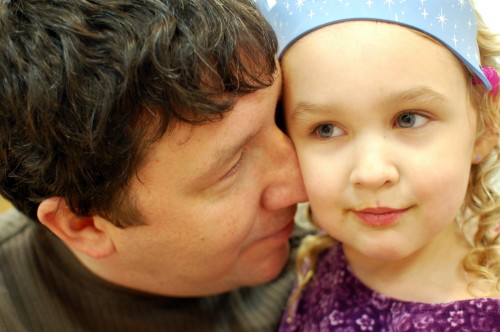‘One of the most important things we adults can do for young children is to model the kind of person we would like them to be’ – Carol B. Hillman
Children are born without any social and personal skills, with crying the only means of communication in the early months. As they grow up, they are given lessons by parents and caregivers on personal and social skills. What many parents may not realize is that kids almost always ape adults instead of listening to what is taught.
In this article, I’ll share examples of how we, as parents, can become better role models in different aspects of our children’s lives. Then, try the questionnaire to determine what kind of role model you are.
Ps and Qs
I cannot help but remember an aunt who used to say ‘please’, ‘sorry’ and ‘thank you’ in her daily conversations with her children since they were babies, even though they were incapable of understanding what she meant. Not surprisingly, these were the same children who used their ‘please’, ‘sorry’ and ‘thank you’ at all the right times when they were capable of talking, not once prompted by their parents.
Do as I Do
Children almost always follow the ‘do as I do’ and not the ‘do as I say’ formula that parents prefer them to follow. If you always show respect for people and speak positively about those around you, your child will automatically learn not to put people down and respect people, whether they are talking to you, a teacher, a waiter, or the maid at home. We are sometimes guilty of talking to ‘unequals’ with different mannerisms. Ask yourself if you are polite when you talk to service staff or children and be assured that it will be the same tone your children will use. The same goes for social skills such as littering – you can’t be teaching your child to dispose of litter in the right place if you are always throwing trash out your car window all the time.
Problem Solving
It is a parental instinct to always look out for your children – when they have problems, we tend to rush to solve it for them. If you always take over fixing things for them, they will never learn to do so themselves. Robbing children of their accountability often makes them dependent on parents when it comes to problem solving. “Problem-solve with kids, rather than for them,” advises Education.com. Model problem-solving skills for your children by discussing the problem with them, evaluating pros and cons and supporting them in their final decision. This way, you are teaching them to look at problems calmly, thinking them through and analyzing different solutions.
Happy Relationships
Children who are brought up in an environment where the adults show love and respect for each other are almost always happy and loving children themselves. These are the children who will automatically argue less, fight less, have more patience and tolerance and have less mood swings because they have not experienced these things within the family. As they grow up, they will always carry this personality and model the relationship their parents have had.

What Kind of Role Model Are You?
What kind of behavior are you modeling for your child to learn from? Here is a list of questions from Family First. They will help you judge your role model standard. Try to be as honest as you can…
- How do you talk about your life? Do you constantly complain about everything in your life from your job to your household duties, or are you positive and passionate about the things that you do, regardless of the situation?
- When you are confronted with a conflict, do you handle and resolve it effectively, or do you withdraw, throw a tantrum (includes stomping of feet and banging doors!), and avoid confrontations as far as possible?
- When faced with a disappointment in life, does your family see it with a positive strategy (setting goals, prayers, solution-based) or do you medicate these disappointments with erratic, negative and addictive behaviors?
- Do you model high morals by avoiding lying, cheating, cursing and gossiping? Children don’t like to be told how to act; instead show them through your actions.
- Do you accept, support and love people for who they are or do you often criticize them or talk behind their backs?
- Do you spend real time with your family, get involved in and support their activities, or do you try to get out of them because you’ve “got too much on your plate”?
Being a good role model may mean you have to change a lot of your behavior, but it’s never too late to get on the ball if you think there’s room to improve. If you are doing a good job, thank your parents for being your role models!
Emotional management, self-control, social interaction, relationships, unconditional love, work attitude and performance, dealing with fears – these are all the things we want to positively equip our children with. If we start practicing more of all this, there is no reason why our children will not do the same.
Tags: Kindergarten (5-7), Lower Primary (7-10), Nursery & K1 (3-5), Upper Primary (10-12)